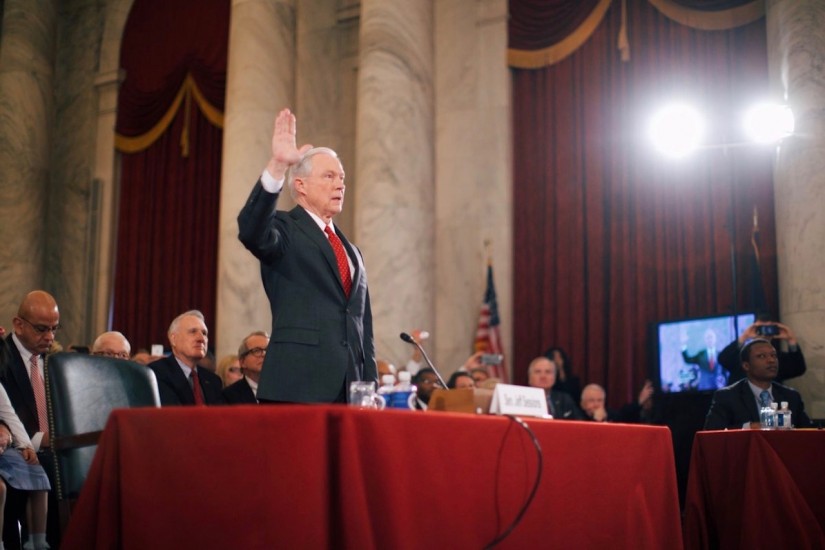The fires on the streets of Ferguson, Missouri, had barely stopped burning when the Department of Justice released an extraordinary report on the city’s police department. In the findings of the 2015 investigation of the Ferguson Police Department, the DOJ’s Civil Rights Division detailed how a municipality had built its social contract on a slow-rolling racist heist. Activists hoped that the Ferguson report—which was prompted by the 2014 police killing of an unarmed black teenager and found that police conduct had “severely damaged the relationship between African Americans and the Ferguson Police Department”—would not only change the city, but would signal that the United States was finally willing to confront the legacy of white supremacy. The Ferguson City Council reluctantly agreed to a consent decree with the DOJ that would overhaul city policing. Federal courts rejected voter-suppression schemes and reaffirmed affirmative action. Movements from Black Lives Matter to LGBTQ advocacy saw an opportunity to broaden the national civil-rights agenda.
Then Jefferson Beauregard Sessions III took over.
More than a year has elapsed since Sessions, formerly a senator from Alabama, was appointed U.S. attorney general by President Donald Trump. For the Trump administration, much of the last 18 months has been spent fighting the fires of one scandal after the next, and watching as the sprawling investigation into Russian interference in the 2016 election—led by Sessions’s own department—has threatened to consume Washington. In that particular drama, the president and his attorney general have clashed. Trump has openly insulted Sessions, claiming that Sessions took a “weak position” on investigating intelligence leaks, and saying that he “would have quickly picked someone else” had he known how Sessions would handle the Russia investigation.
But behind the scenes, even as the president has agitated in public about firing his attorney general, Sessions is the true architect of much of what people believe to be Trump’s domestic-policy agenda. As implemented in recent decisions to curtail asylum grants, ramp up immigration enforcement, and dial back criminal-justice reform and voting-rights protections, this agenda is more than just the reversal of policies enacted during the Barack Obama era, which Trump promised during his campaign. Rather, from the Black Belt in Alabama in the 1980s to the farthest reaches of the border fence today, the Sessions Doctrine is the endgame of a long legal tradition of undermining minority civil rights.
